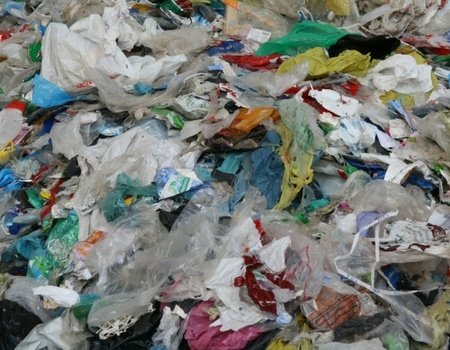 Ahead of its commitment to making all of its plastic packaging reusable, recyclable or compostable by 2025, Unilever has taken a big step in its sustainability mission by successfully completing the pilot stage of technology that converts polyethylene terephthalate (PET) waste into virgin grade material for use in food packaging.
Ahead of its commitment to making all of its plastic packaging reusable, recyclable or compostable by 2025, Unilever has taken a big step in its sustainability mission by successfully completing the pilot stage of technology that converts polyethylene terephthalate (PET) waste into virgin grade material for use in food packaging.
The latest technology developed by Ioniqa takes non-recycled PET waste such as coloured bottles, which can prove difficult to properly recycle, and breaks it down to base molecule level while separating the colour and other contaminants. Its at this stage that molecules are converted back into PET which can be refashioned into transparent virgin-grade material and coloured varieties.
The next big challenge awaits, however, as Unilever, which has been working in partnership with the start-up Ioniqa the company that developed the eco-plastic and PET resin company Indorama Ventures, will now move to see if it can be produced at an industrial scale. Proving that a bio-based product can be produced in huge numbers can often be the stumbling block for small companies and start-ups as many dont have the resources to make it a success, a situation that Unilever is unlikely to be troubled with.
Pending successful industrial-scale testing, the companies behind the project have said it will be possible to convert the PET back into food-grade packaging which is subject to higher standards than conventional plastics used in other products.
Chief R&D officer at Unilever, David Blanchard, said a desire to step away from the take-make-dispose model was the companys motivation behind the project. This innovation is particularly exciting because it could unlock one of the major barriers today: making all forms of recycled PET suitable for food packaging.
Indeed, making the PET stream fully circular would be a major milestone towards this ambition, not just helping Unilever, but transforming industry at large, said Blanchard.
Ioniqa said the prospect of scaling up the production of the bioplastic would turn it into a truly circular material which holds value after disposal by consumers, helping to clean up the planet.
In related news, scientists from the UK and US this week revealed details about an enzyme it had developed that could effectively eat plastic, turning it into a state that could be used again in a matter of minutes. Remarkably, the efficiency of the enzyme, which was first discovered in Japan, was boosted after the scientists changed its structure to see how it had evolved.The findings are reported in a journal published by theProceedings of the National Academy of Sciences.
You may also be interested in this from Bio-Based World News
Read:Co-op heats, brews and leaves plastic out of its latest tea.
Read:Just Eat commits to cutting plastic usage with “practical” bio-based alternatives.
Read:Five very different ways that can help tackle the global plastic crisis.





